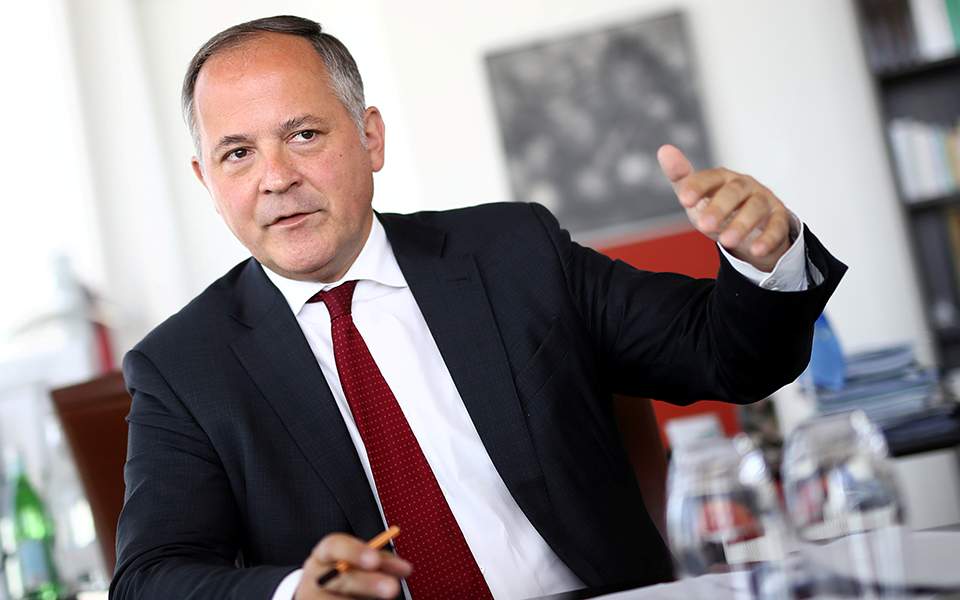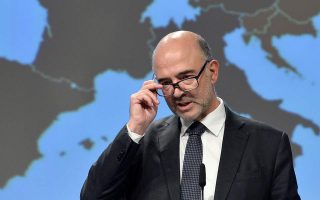Outgoing ECB executive Benoit Coeure proud of keeping Greece in euro

In his last interview as a member of the executive board of the European Central Bank, French economist Benoit Coeure said that helping keep Greece in the euro was one of the highlights of his eight-year stint at the ECB.
“When the Greek government was close to bankruptcy, we ensured the continued financing of the Greek economy and of Greek banks – which had lost access to the markets and to their own savers following a capital flight – while respecting the political will of euro area governments that the assistance to Greece should be conditional,” he told France’s Liberation in an interview published on Tuesday when asked about what acomplishments he was most proud of.
“Our actions ultimately allowed Greece to remain in the euro. There were those who wanted to make the ECB responsible for Greece leaving the euro area, but we resisted that!,” he added.
Asked how the ECB changed over the years that he was on its executive board, Coeure said that “the existential crises we went through, first with Spain and Italy in summer 2012 and then with Greece in summer 2015, and the actions of one man, Mario Draghi, who was president of the ECB until November this year, gave us the necessary maturity to make full use of the instruments granted to us by the treaties.”
On the subject of the Greek bailout and the strain this put on eurozone solidarity, Coeure told Liberation that “participation in the euro brings with it a duty of solidarity when your neighbor is going through a rough patch.”
“While it's true that the member states fulfilled their duty towards Greece, Ireland, Portugal, Cyprus and Spain, they did so under conditions that were extremely costly, or even toxic, on a political level,” he added in comments translated into English on the website of the Bank of International Settlements. “The adjustment programs generated huge tensions and acrimony. And, conversely, you need to keep your own house in order to avoid creating problems for your neighbors. Countries can have whatever economic policy they want, that's democracy, but on the condition that they do not jeopardize their neighbors. To that end, the members of the club need to observe certain rules.”





